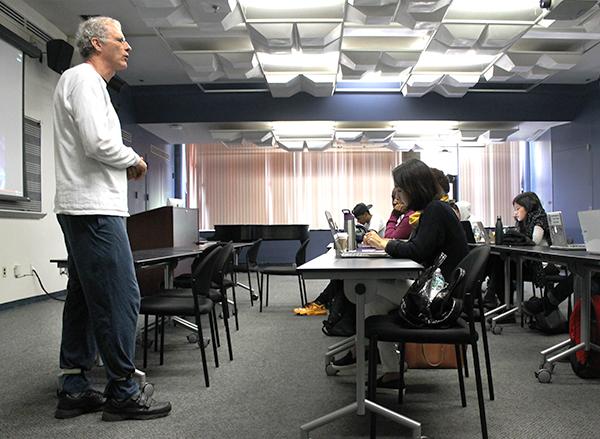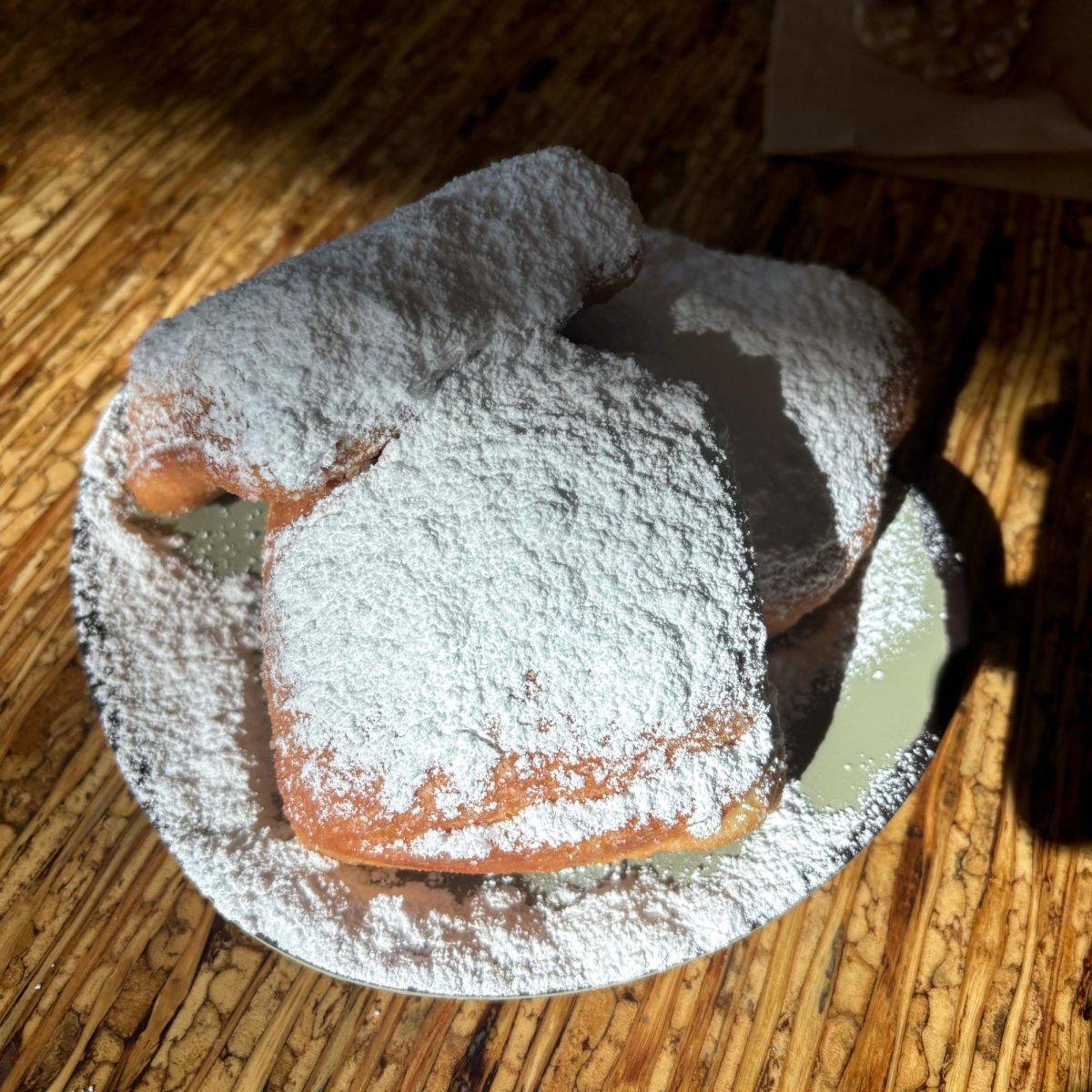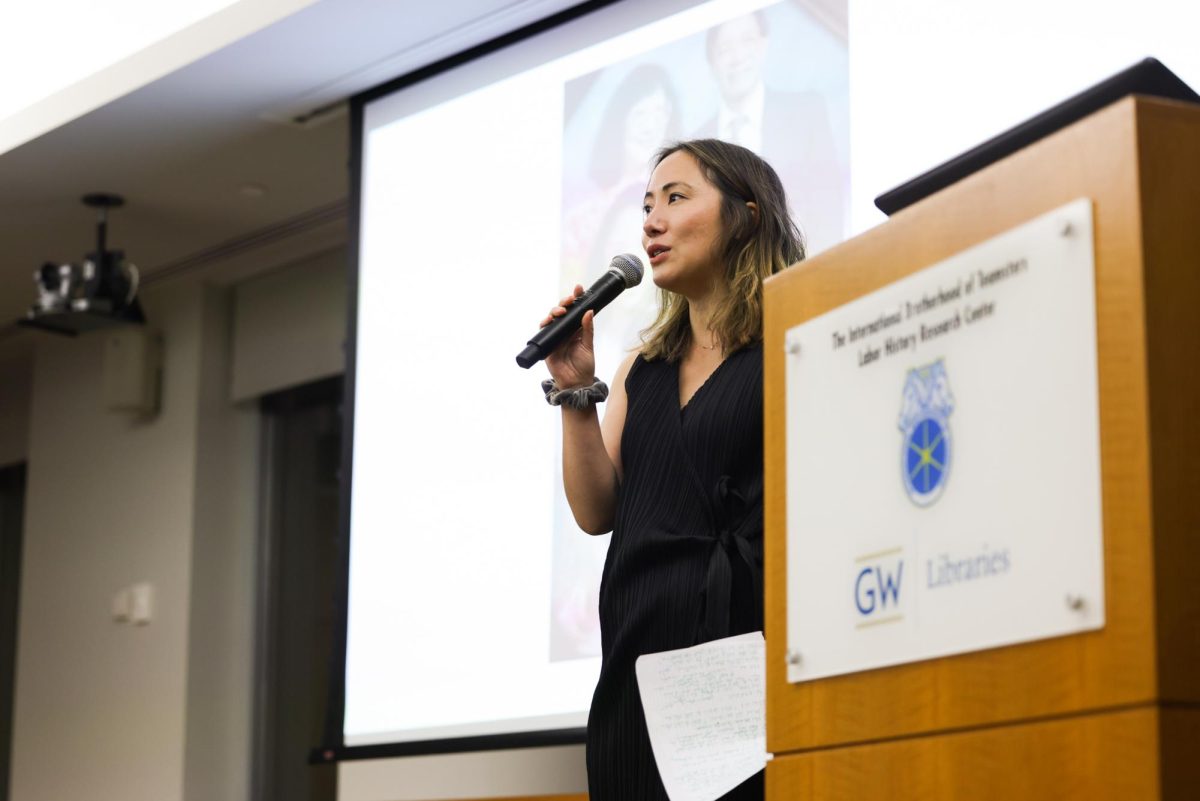
Gelman Library isn’t only home to students combing through the stacks and working on papers late at night. Now, it’s also home to a music archive.
Professor Christopher “Kip” Lornell said he is looking to push the boundaries of musical education with the launch of the D.C. Vernacular Music Archive. To get it off the ground, Lornell personally donated hundreds of dollars to the project.
The archive, which opened Oct. 16 inside Gelman’s Teamsters Room on the seventh floor, looks at punk, go-go, folk and bluegrass music by often-forgotten D.C.-based musicians like Emmylou Harris and and Mama Cass. The collection is mostly comprised of old photographs, magazines and books, and also includes photos from the GW Folk Music Club, which formed in the 1960s, and some student work.
Lornell said the Vernacular Music Archive is the first of its kind in the U.S. – if not the world. He said through the project, he wants to reacquaint D.C. residents with music genres that have deep roots in the city.
“Material just disappears. Posters tend to get thrown away. Many people whose musical lives were rich and rewarding are not recognized,” Lornell said.
He first discussed the concept of a music archive with colleagues about two years ago. The plans solidified after he met with Special Collections officials last fall.
Lornell had to write a two-page proposal for the project, explaining what purpose the archive would serve. He said the entire process was straightforward and “less bureaucratic than one would typically expect from an institution the size of GW.”
Gelman’s Special Collections fund supports the archive, thought Lornell said the library has had a flat budget for the last decade.
Lornell and Tina Plottel, an instruction and reference librarian at GW, consulted the Library of Congress folk archives, University of D.C. Jazz Archive, D.C. Public Library, University of Maryland and Smithsonian Institution to both understand the interests of surrounding archives and ensure the D.C. Vernacular Music Archive would be distinct from the others.
“We have a very broad mandate to look at vernacular music at large within D.C. and the DMV. This is what makes it different,” Lornell said.
Revitalizing local music is not a new endeavor for the professor – since 1970, as a high school student in upstate New York, Lornell has focused on music research.
But it wasn’t until 1988, when he became a postdoctoral fellow at the Smithsonian Institution, that Lornell’s work drew him to D.C. He started teaching at GW in 1992, and said he makes sure the focus of his courses revolve around the music culture of the city. He sends students to local neighborhoods to immerse themselves in the music scene and conduct research.
“I spend time focusing on D.C. in all my courses – particularly in Ethnomusicology and my Black American Music class. Washington, D.C. is at the core of what I do,” Lornell said.
Lornell said he doesn’t think he’ll start any new music projects in D.C. or at GW. His vision is to ensure that when he retires from the University in the next five to 10 years, the archive will be his legacy on campus.






